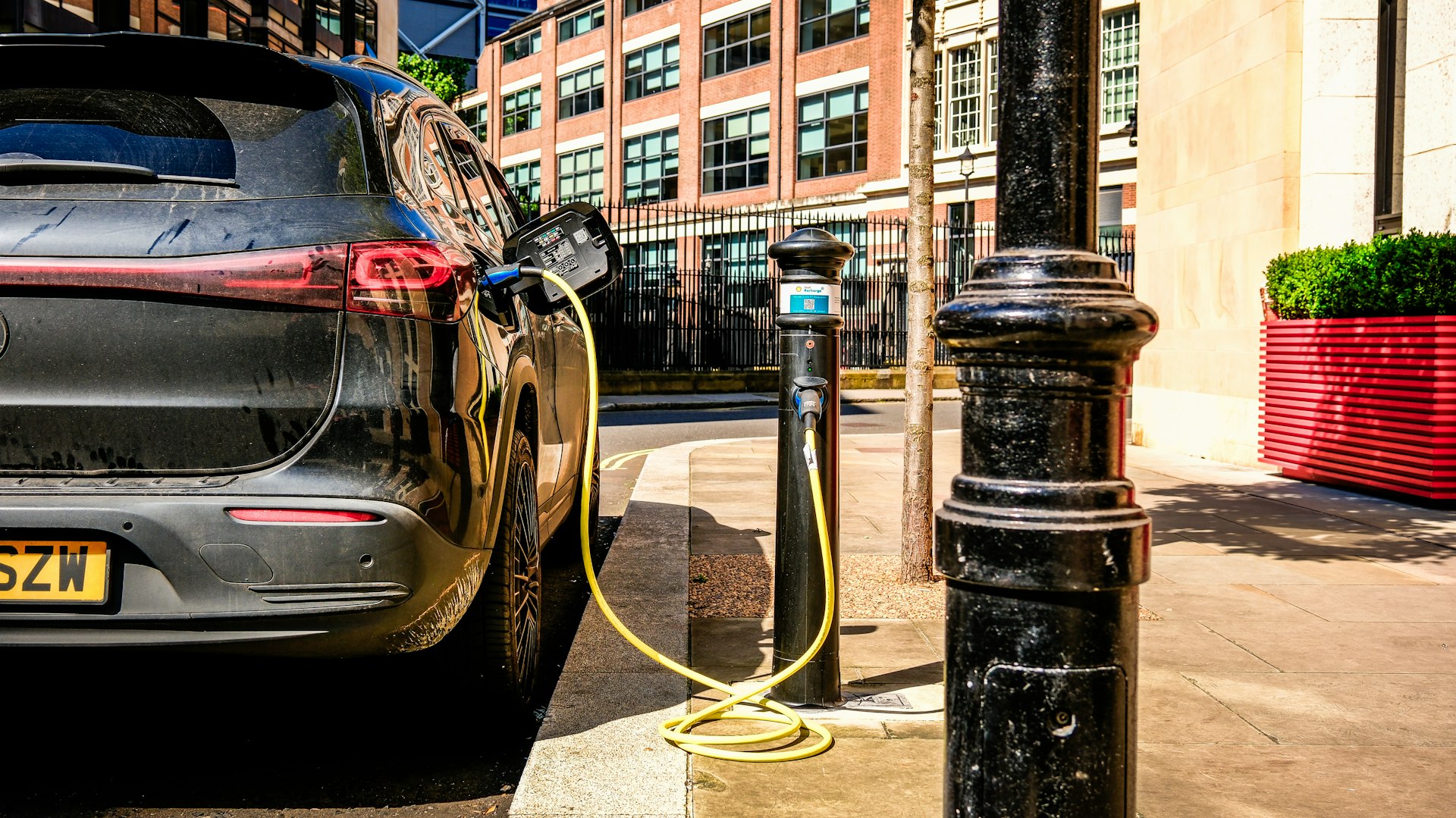How Smart Contracts Will Transform Financial Services in 2025 and Beyond

Photo by Amina Atar on Unsplash
Introduction: The Smart Contract Revolution in Financial Services
Financial services are undergoing a profound transformation. Smart contracts -self-executing agreements coded onto blockchain networks-are at the heart of this change. As we move into 2025, smart contracts are expected to automate routine transactions, reduce fraud, and open new opportunities for banks, payment providers, and investors. This article explores how smart contracts are reshaping the financial landscape, what benefits they offer, and how you can access these emerging opportunities.
What Are Smart Contracts?
A smart contract is a digital agreement programmed to execute automatically when specific conditions are met. Unlike traditional contracts, smart contracts do not require intermediaries and offer transparency, security, and efficiency. In financial services, they underpin decentralized finance (DeFi), asset management, insurance, payments, and more [5] .
Key Trends Driving Smart Contracts in Financial Services
Blockchain Integration and DeFi Expansion
By 2025, decentralized finance (DeFi) platforms built on blockchain are delivering secure, transparent, and efficient alternatives to traditional banking. Smart contracts automate lending, insurance, and cross-border payments, reducing manual intervention and fraud risks. Banks are beginning to offer blockchain-based products, such as tokenized assets and digital currencies, to remain competitive [1] , [4] .
Automation and Programmable Payments
Smart contracts enable programmable payments, where transactions execute only when predefined conditions are met. This automation minimizes errors, speeds up settlements, and allows complex agreements-such as splitting payments between multiple parties or adjusting based on external data-to be managed seamlessly [5] . For example, B2B payments can now be enriched with data, helping businesses extract valuable insights and maintain precise records.
Asset Tokenization and New Investment Models
Smart contracts are driving the tokenization of real-world assets -from real estate to intellectual property-by representing ownership as digital tokens on a blockchain. This allows automated dividend or rent distributions and easier transfer of ownership. Tokenization bridges traditional finance with blockchain, enabling secure and compliant asset management [3] .
Account Abstraction and User-Friendly Wallets
Innovations like account abstraction and smart contract wallets are making blockchain accessible to non-technical users. Features such as social recovery, fee sponsorship, and granular permissions allow users to interact with decentralized applications (dApps) without worrying about losing private keys. This lowers barriers for mainstream adoption and fosters broader participation in digital finance [3] .
AI-Powered Personalization
Artificial intelligence (AI) and machine learning are enhancing smart contracts by enabling hyper-personalized financial services. Banks and fintechs can analyze vast datasets to recommend tailored investment, lending, and savings strategies. AI-powered chatbots and analytics solutions also improve customer service and reduce churn, ensuring that institutions maximize lifetime value [2] .
Practical Applications: How to Access Smart Contract-Driven Financial Services
Payments and Money Movement
To leverage programmable payments, consider working with leading payment networks and banks offering blockchain-enabled products. Look for services that support automated settlements, rich data integration, and compliance standards. If you’re a business, you may access these features through your payment provider’s advanced platforms or by integrating with APIs provided by major banks and fintechs.
When seeking programmable payment solutions, use search terms such as “blockchain payments platform”, “programmable payments”, or “DeFi payment network” on the official websites of global payment leaders like Visa or Mastercard. Review product documentation and reach out to their business development teams for implementation guidance.
Tokenized Asset Investment
To invest in tokenized assets, start by researching regulated platforms that offer real estate, bond, or intellectual property tokens. Ensure the provider complies with local financial regulations and offers transparent asset management. You can search for “regulated tokenization platforms” or “blockchain asset investment” on the websites of established financial institutions and consult their compliance departments for further information.
Alternatively, consult with licensed financial advisors experienced in digital assets to understand the risks, benefits, and steps involved in onboarding to tokenization platforms.
Smart Contract Wallets and dApp Onboarding
If you’re interested in using smart contract wallets, look for solutions from reputable blockchain development firms or crypto exchanges. Prioritize wallets with account abstraction, social recovery, and robust permission controls. To find these, search “smart contract wallet” or “account abstraction wallet” on trusted technology review sites or established crypto platforms.
For onboarding, follow the provider’s official user guide, ensure secure backup practices, and use multi-factor authentication wherever possible.
AI-Powered Financial Services
Consumers and businesses can access AI-powered financial personalization by working with banks and fintech companies that invest in advanced data infrastructure. Look for institutions offering tailored savings, credit, and investment products based on your financial behavior. You can search “AI-driven financial services” or “hyper-personalized banking” on the official websites of leading financial institutions.

Photo by Sortter on Unsplash
Challenges and Solutions
While smart contracts offer innovation, implementation comes with challenges:
- Regulatory Uncertainty: Financial institutions face complex, evolving regulations around digital assets and smart contracts. To address this, work with providers who adhere to official regulatory frameworks and invest in compliance technology [4] .
- Security Risks: Blockchain and smart contracts are secure by design, but vulnerabilities can occur in poorly coded contracts. Choose platforms that have undergone third-party audits and maintain transparent security practices.
- Integration Complexity: Legacy systems may struggle to integrate with blockchain technologies. Look for hybrid solutions or consult with integration specialists to ensure seamless adoption.
- User Onboarding: For non-technical users, onboarding can be a hurdle. Opt for platforms with intuitive interfaces, educational resources, and strong customer support.
Alternative Pathways and Future Opportunities
If you’re unable to access smart contract-enabled services through your current provider, explore alternative pathways:
- Contact your bank’s emerging technologies or digital assets division to inquire about upcoming product launches.
- Reach out to fintech startups specializing in DeFi and asset tokenization for pilot programs and early access opportunities.
- Attend industry conferences or webinars on blockchain and smart contracts to network with experts and discover new offerings.
- Search for government and regulatory updates regarding digital finance adoption in your jurisdiction for compliance guidance.
Summary and Key Takeaways
The future of smart contracts in financial services is marked by automation, security, and personalization. From programmable payments to tokenized investments and user-friendly wallets, the industry is evolving rapidly. By staying informed, leveraging verified providers, and understanding the regulatory environment, you can unlock the benefits of smart contracts and participate in the new era of digital finance.
References
- [1] Anaptyss (2025). Key Trends in Digital Transformation for Financial Services in 2025.
- [2] Infomineo (2025). Financial Industry Trends in Banking and Fintech in 2025.
- [3] Nadcab Labs (2025). Smart Contracts in 2025 Emerging Key Trends.
- [4] First Bank & Trust Company (2025). Top Banking Trends to Watch in 2025.
- [5] Visa Corporate (2025). Money Movement Trends You Need To Know In 2025.
MORE FROM smartsavingsfinder.com













